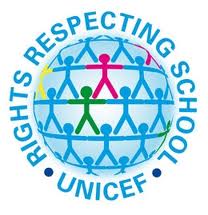Rights of the child
UN Convention on the Rights of the Child 1989
The Convention sets out what a child needs to survive, grow, participate in society and fulfil his or her potential. It awards a role for UNICEF in implementing the Convention. It has been approved by all United Nations member states except the US and Somalia. It came into force in the UK in January 1992.

Children’s rights as set out in the Convention consist of:
| education: primary education should be free | |
| health: health care, clean water, nutritious food, safe environment | |
| childhood: with extra care, protection, opportunities for rest and play | |
| fairness: no discrimination on grounds of ethnicity, gender, beliefs, HIV status, abilities, family background | |
| a voice on matters that affect them |
UK initiative in schools
 |
The UK government introduced an initiative, Rights Respecting Schools, to encourage increased respect for children’s rights in primary and secondary schools. The initiative is supported by UNICEF. To be accredited as a Rights Respecting School, a school has to provide a range of activities and programmes to reflect children’s rights in the curriculum and to embed them in the school’s ethos and policy making. |
| Schools that implement Rights Respecting values and principles and have mechanisms in place to monitor them may apply for a Rights Respecting Schools Award that is externally assessed. | |
What it means for children
| In Rights Respecting Schools children enjoy improved self esteem, improved relationships with other children and with teachers, and are involved in decision making. Typically they will be more open minded, more accepting of people from different backgrounds, and more concerned about justice across the world. |  |
For more information see:
UNICEF
Children's Rights
UN Convention on the Rights of the Child (a summary leaflet/poster, pdf)
The Rights Respecting School award (pdf)


 Rights of the Child
Rights of the Child